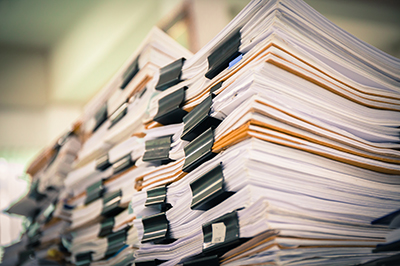Elevate the power of your work
Get a FREE consultation today!
Prevent identity theft or a data breach,

Contracts, bills, employee files, invoices – the documents your organization generates contain a wealth of sensitive information. Protecting that business critical information is crucial. Your customers trust you to prevent their information from falling into the wrong hands and regulatory bodies demand compliance regarding when — and how — it’s destroyed.
Work with a certified third-party vendor to create a Secure Shred Program. When you routinely — and securely — shred sensitive business documents you:
Identity theft is the nation’s fastest growing crime and a recycling bin is a lot easier to steal from than an email inbox. Shredding protects your organization, and your customers, from being a target.
Your employees spend a lot of time looking for the few documents they need filed among the many they don’t. Routine shredding keeps our onsite files lean and easier to navigate.
Only a certified shred vendor can provide a Certificate of Destruction (COD). A COD is accepted as proof by both auditors and regulatory bodies that sensitive information was destroyed securely.
Any document that has a signature, account number, social security number or medical or legal information should be shredded. For example:
The secure destruction of sensitive business documents is a necessity. The regulations that govern how organizations handle and destroy sensitive information have evolved and the fines for non-compliance have drastically increased.
However, despite the financial and security benefits of employing a certified third-party shred vendor some organizations still manage their shredding internally. In-house shredding is problematic on several levels:
Work with a qualified vendor to create a Secure Shredding Program to protect your business and your customers.
Learn more at ironmountain.com/services/secure-shredding
Discover how you should implement a Data Destruction policy. Read more around the Iron Mountain business document shredding & bulk shredding services here.
4 Reasons To Use Iron Mountain Shred
Get a FREE consultation today!

